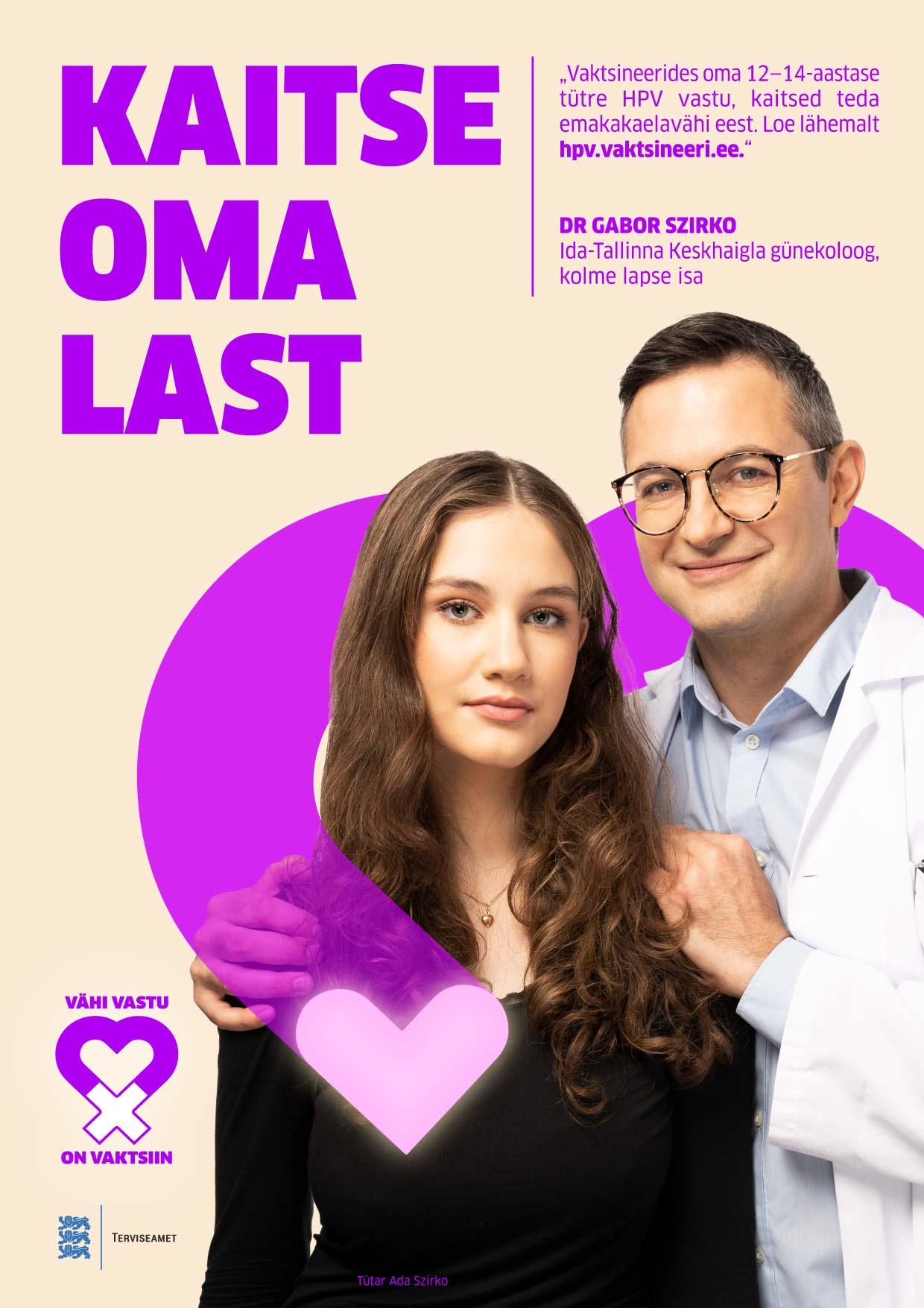Head of Midwifery: cervical cancer can be prevented
This year, 70,000 women are invited to participate in cervical cancer screening procedures. Estonia has one of the highest cervical cancer morbidity and mortality rates in Europe. Approximately 150 women in Estonia receive a cervical cancer primary diagnosis and around 60 women die due to the disease, but only about half of the women invited attend the cervical cancer screening procedure.

ITK Maternity Counselling Centre Head of Midwifery Silja Staalfeldt-Rahumägi states that awareness of cervical cancer and its prevention has not really improved since 2006 because the screening procedure percentage has not increased during these years. “Awareness is only one aspect; the other is scepticism, namely the belief that it won’t happen to me,” says Staalfeldt-Rahumägi. “When compared to Finland, taking care of one’s health is considerably lower. In Estonia, less than 50% of women invited to screening procedures actually attend, while in Finland that percentage is close to 80% in their better years. Therefore, cervical cancer morbidity and mortality in Estonia is nearly twice as high as the European average.”
99.7% of cervical cancer cases are caused by the human papillomavirus, also known as HPV. It is believed that HPV has over 200 subtypes, 14 of which are classified as high risk. The disease causes persistent infection in approximately 1 in 10 people infected with high-risk HPV; over a period of years, this can lead to cell changes in the cervix, also known as cervical dysplasia. If this remains undetected and untreated, the cell changes can develop into cancer.
“Overall, we can say that approximately two-thirds of adults will be infected with some type of HPV in their lifetime, but the majority of them (90%) will be cured naturally within six months to two years,” confirms Silja Staalfeldt-Rahumägi. “In approximately 10% of cases, the body unfortunately cannot cope with the disease and cell changes begin to occur in the cervix. During the screening procedure, we’ll pinpoint the women who are infected with a high-risk subtype of HPV and who should continue to be monitored. We will then intervene if pre-cancerous cell changes occur and develop. Surgery can remove the changed cells, which in turn prevents them from developing into cancer. That’s why we can say that cervical cancer can be prevented in most cases.”
Symptomless
Cervical cancer has zero specific early symptoms. If the patient turns to us exhibiting symptoms, it’s usually a case of an advanced cancer. We would be able to prevent a high percentage of cervical cancer cases if all women participated in the regular screening procedure. As the screening procedure percentage is low, women usually see a doctor when it’s too late and they receive their diagnosis after the symptoms and problems have already developed. Cervical cancer development takes 10-15 years, but it can and should be prevented.
Fast screening procedure
The waiting time for the screening procedure is usually short; it shouldn’t take more than a couple of weeks. “The procedure is pretty straightforward, quick and painless,” says the Head of Midwifery and adds that cervical cancer is essentially the only cancer type that a person can get vaccinated against. Getting vaccinated against HPV provides approximately 85% protection against cancer.
We are all responsible for the prevention of cervical cancer
We could prevent most, if not all, cases of cervical cancer with HPV vaccination and regular screening procedures. We, as healthcare professionals, have an important role to inform patients and advocate screening procedures. Think about yourself and your loved ones. All women with cervical cancer are mothers, daughters, wives, sisters, friends or colleagues.
In 2023, we welcome women with the following birth years for the cervical cancer screening procedure: 1958, 1963, 1968, 1973, 1978, 1983, 1988, 1993.
The screening procedure is FREE OF CHARGE for women with or without health insurance!
Book an appointment by calling 666 1900 or register via the digital registry at ipatsient.ee.
The screening is performed at the Women’s Clinic of East Tallinn Central Hospital at Ravi 18 and at the Women’s Outpatient Clinic of the Tõnismäe unit at Hariduse 6.
 Terviseportaal
Terviseportaal